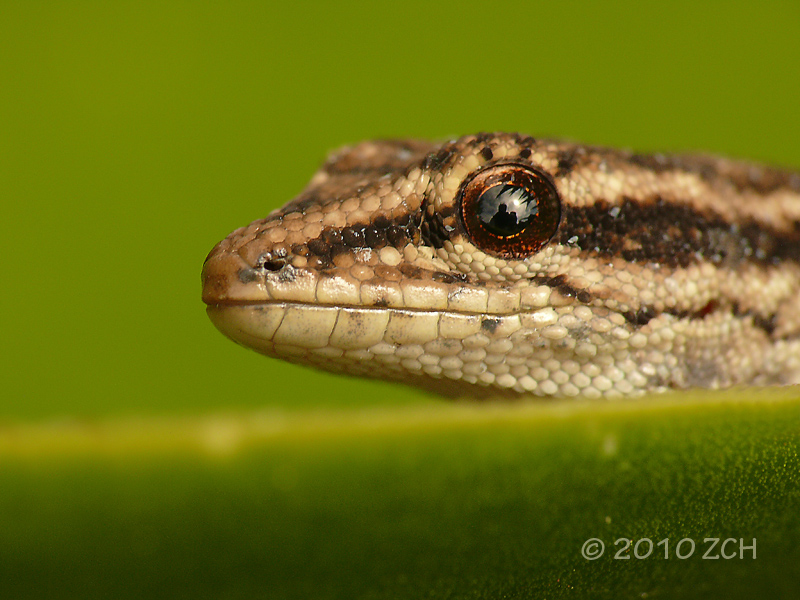skink lizard images & info
Scalation same as in prairie skink; smooth. Adults
are brown or black with no pronounced color change on the sides with
five light narrow stripes down the back and sides. Five-lined skinks are
often found in small colonies around rock outcroppings in the open
areas on bluffs. Here, as in Minnesota, these lizards appear to be
absent on other parts of the same bluff or on similar bluffs in other
areas. With good management practices, these areas may be be inhabited
by new populations of five-lined skinks.
skink lizards, mostly secretive ground dwellers or burrowers, that are represented throughout most of the world but are especially diverse in Southeast Asia and its associated islands, the deserts of Australia, and the temperate regions of North America. The bodies of skinks are typically cylindrical in cross section, and most species have cone-shaped heads and long, tapering tails.
skink lizards, mostly secretive ground dwellers or burrowers, that are represented throughout most of the world but are especially diverse in Southeast Asia and its associated islands, the deserts of Australia, and the temperate regions of North America. The bodies of skinks are typically cylindrical in cross section, and most species have cone-shaped heads and long, tapering tails.

skink lizard pics

Females guard the eggs and eat the ones that have spoiled (Oldfield and Moriarty, 1994). The eggs hatch in August. I have observed E. fasciatus hatching in Jackson County, IA. on August 21. There were two or more nests discovered under shingles laying on the forest floor high up on a bluff. All nests had females in attendance.
 skink lizard pictures
skink lizard pictures skink lizard images
skink lizard images
All of Iowa's lizards are quick and rely on speed to escape when they are out and about. The skinks look like small snakes slithering through the brush as they move their bodies in a very serpentine way when they run. One must use caution when trying to capture skinks.
 skink lizard pictures
skink lizard pictures
All nests had females in attendance. Clutch size ranged from five to twelve. The young were jet black with five thin, yellow lines down the back and had bright blue tails. They were a little over 2 inches at hatching.
One must use caution when trying to capture skinks. Often one will end up with nothing but a wriggling tail as the lizard scoots off to safety. Skinks may also break their tails off by themselves by pushing it against a solid structure. The tail will regenerate, but it will have no pattern, will have slightly different scalation, and will never be as long as the original one.
Iowa's lizards hibernate underground in burrows they dig, and five-lined skinks hibernate in rock crevices and tunnels. They usually begin hibernating in September.









